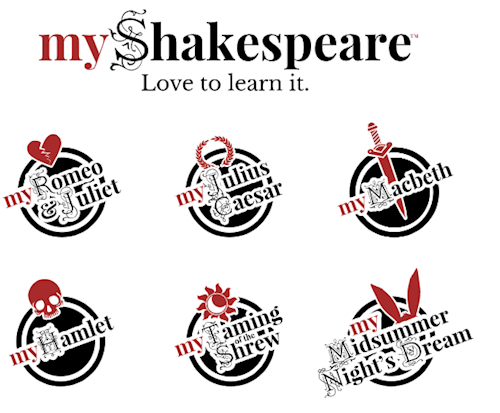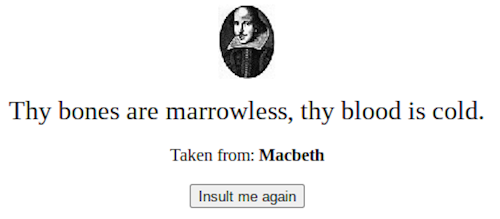

Reading Shakespeare can be a daunting task for many learners. Grappling with the many unfamiliar words, unraveling the Yoda-speak of inverted sentences, recognizing the meaning and purpose of figurative language. Fortunately, there are free resources to help with understanding.

myShakespeare: Available here are full-text digital versions of the plays with a bunch of media features that help learners decipher the language for better understanding. For example, there are pop-up notes to explain figurative language in highlighted portions of the text. You can click icons to hear certain lines or watch videos of people performing some lines. Sign up for a free account to access useful study tools, such as multiple choice comprehension questions.
Folger Shakespeare Library: Has a variety of teaching modules and lesson plans. Also visit their Shakespeare for Kids page.
Shakespeare Uncovered: PBS LearningMedia site with videos and lesson plans.
Shakespeare in the Ruins: Free study guides.
Phrases from Shakespeare: List of Shakespearean sayings, what they mean, and the plays from which they are derived.
Virtual Tour of the Globe Theater
Online Graphic Novels: Romeo & Juliet The Tempest
Shakespeare Reading Tips: General tips on the writing devices Shakespeare used as well as a short list of common words of his day.
A Mid-Summer Night's Dream Unit Study: With comprehension questions/answers; vocabulary, quotes, and dramatic devices activities, and other activities.
Romeo & Juliet Folder Project: Use a file folder, note cards, and some glue for this hands-on literary analysis.
Creative Romeo & Juliet Projects: Ideas here for projects employing acting, art, music, photography, and writing poetry.
Shakespeare Fun and Games: Here, you'll find infographics, quiz games, and Shakespeare charades videos.
For a laugh, try the Shakespeare Insulter.

Short video tutorials on topics like parts of speech, kinds of sentences, punctuation, subject-verb agreement, and contractions. For grades 1 - 6.
Comments